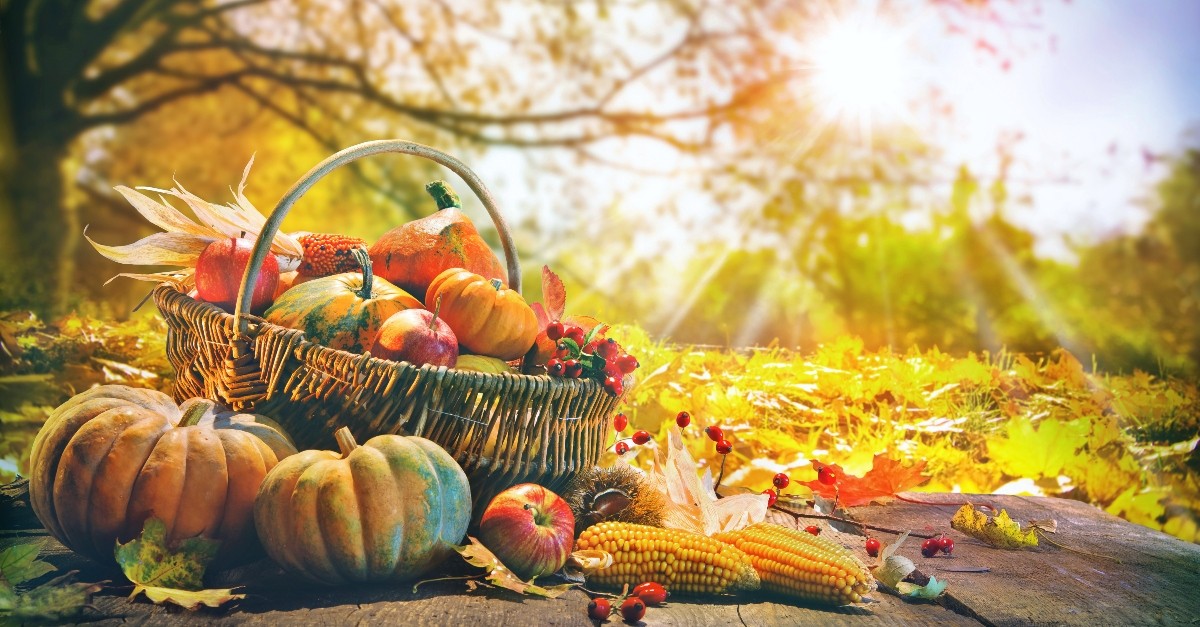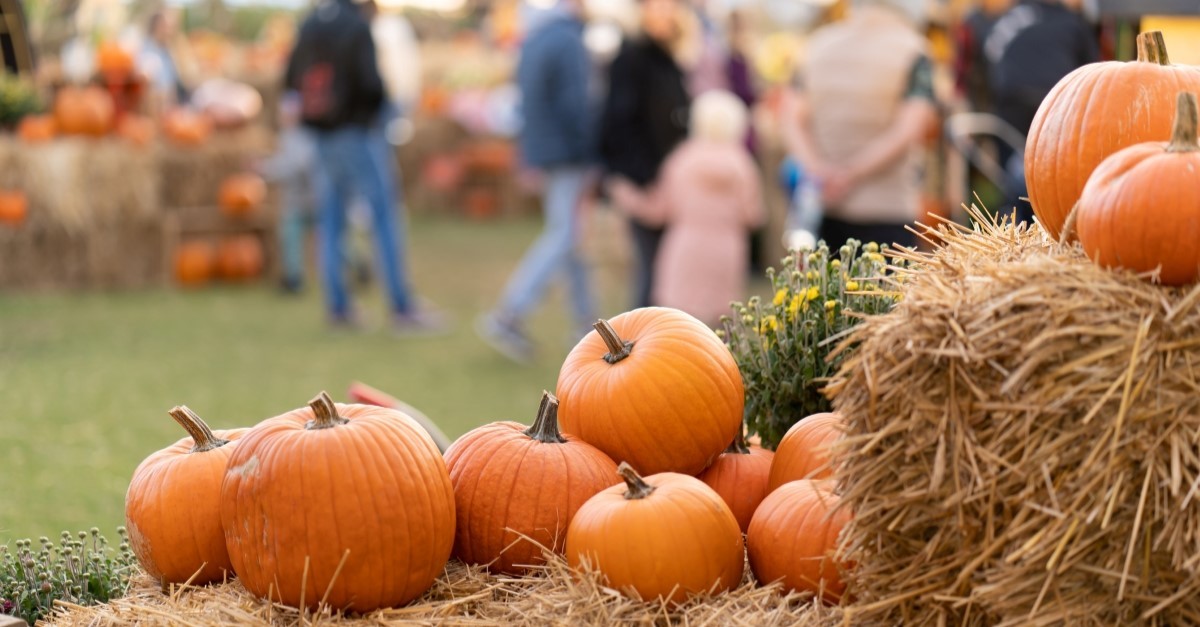
As a kid, I dreaded the end of summer break. The fading of summer meant returning to school with the pressures of starting a new grade level and navigating a world of tests and friends. September was especially difficult since there seemed to be a long stretch of time before Thanksgiving and Christmas.
Despite all the discomfort of returning to school, I always enjoyed autumn. Cooler days with beautiful changing leaves were a welcome change for a girl living in the South. My mother often bundled my sisters and me in sweaters and took us to the park. We would jump into piles of leaves or ride our scooters. Such ordinary things brought delight, leaving me with a sense that fall was a magical time.
All of us have our favorite season. Some might prefer the sun-soaked days of summer, while others relish the fiery colors of autumn. Regardless of whether we enjoy warmer or cooler weather, there are things we can learn in every season. God’s beauty and goodness are evident throughout the year – If we are willing to observe the small ways, the Lord reveals His grace every day.
Photo Credit: ©iStofk/Getty Images Plus/Drazen Zigic

1. Late Summer Blooms Reflect God’s Promise of Eternal Hope
Individuals may feel sad when they see plants and flowers die in the transition period from summer to fall, especially if they enjoy warmer seasons. The lush gardens and full trees are starting to wilt and change. Yet, there are late summer blooms that flourish in this in-between time. For example, sunflowers remind us of sun-filled days, while chrysanthemums point us forward to the beauty of autumn.
A bundle of colors emerging in a browning landscape can serve as a parable to us as believers. Those late summer blooms are the last glimpse of summer and a promise that the sunny season will return. We are not saying goodbye forever. For everything, there is a season (Ecclesiastes 3:1).
Likewise, we have the promise that although we often must let go of dreams and say goodbye to loved ones who die, these things are not forever. Our futures have been transformed in Christ since we know our believing loved ones are not dead but alive and will one day be resurrected. Every tear will be wiped away when our Lord swallows death forever, and we will witness the renewal of all things (Isaiah 25:8; Revelation 21:1-5). We will never again dread a new season or face a premature goodbye on that day.
Plants may seem like ordinary parts of our lives, but a simple bundle of flowers standing tall while other plants come to the end of their growing season can remind us of God’s promises. He provides these experiences of simple beauty to give us hope, showing us that our world will not always remain broken and dark.
Photo Credit: Unsplash/Leohoho

2. Autumn’s Fiery Foliage Give Us a Glimpse of God’s Masterful Design
Every year, trees' leaves change color from shades of green to red, brown, gold, and orange. People are accustomed to these changes and expect them. Despite the familiarity, we can find individuals standing ready to capture pictures or admire the fiery foliage each fall. Some even travel long distances to see the changes in mountain forests. Autumn colors, thus, are an event that many people plan to see and experience.
Our Lord crafted an intricately designed world that continues to captivate humans as they study nature. It is interesting how God not only made the world to function and sustain life but also made it beautiful. He is the master Artist and Gardener who left His fingerprints on all creation (see Romans 1:20). The rich colors of fall leaves testify to the beauty and glory of the Lord.
Scripture tells us, “God has made everything beautiful for its own time. He has planted eternity in the human heart, but even so, people cannot see the whole scope of God’s work from beginning to end” (Ecclesiastes 3:11 NLT). He designed everything with its own season and time. The changing of autumn leaves is not a coincidence or solely naturalistic process, for the beauty we witness causes us to pause and notice the work of His hands. Such moments can stir in us a longing that tells us that we were made for an eternal relationship with the Creator of such beauty.
Let the orange and golden leaves remind us of our purpose to know and glorify God.
Photo Credit: ©Getty Images/Evgeniia Siiankovskaia

3. Fall Harvest Reflects God’s Faithfulness
In autumn, many things are harvested – gourds, pumpkins, and corn. These become centerpieces of the season as we adorn our houses and plan recipes using these fruits of the harvest. However, people are also planting new things during this time. Gardeners plan for spring by planting bulbs and flower seeds, an act of faith since they look forward to blooms they cannot yet see.
We can catch glimpses of God in a season of bringing in crops and enjoying food together. We see the colorful squash and pumpkin varieties and savor the festive recipes, which invite us to “Taste and see that the LORD is good” (Psalm 34:8, NIV). Only by His grace and provision did the rain and sunlight come to enable the plants to grow and bear fruit (Acts 14:17). Such good gifts should cause us to recognize God’s work and give thanks for what He has given.
The act of planting and preparing for future blooms also reminds us of truths about the Lord. We plant in faith with eyes directed toward the growth of future flowers. Likewise, we walk by faith and live with eyes fixed on our future with the Savior (2 Corinthians 5:7). He enables us to sow gospel seeds and water them, but all glory belongs to Him, who makes things grow (see 1 Corinthians 3:7).
Harvest and planting point us to the Lord, the Giver of good gifts and spiritual blessings. He establishes the work of our hands and allows us to enjoy the fruit of our labors. Whether appreciating a colorful gourd or a delicious dish, we can give thanks knowing we have experienced the goodness of God (James 1:17).
Photo Credit: ©iStock/Getty Images Plus/AlexRaths

4. Seasonal Festivities Remind Us of God’s Faithfulness
Many individuals can struggle with the end of summer. School starts back, and life assumes a seemingly monotonous schedule. The fun seems to have ended with the waning of the warmer weather.
Summer has many great aspects, like longer days to spend with family and friends, increased time outdoors, sports events, and cookouts. But we need not think that fall lacks times of fun and celebration. There are fall festivals to attend, cozy evenings with family, holidays (like All Saints’ Day and Thanksgiving), and the beginning of Advent.
These activities can help us pause and remember God’s love even if the school becomes overwhelming or the daily work schedule tires us. The Bible shows us how, in the past, the Lord had instituted feast days for the Israelites to draw them into periods of reflection and remembrance about what He had done for them. Sukkot, or the Feast of Tabernacles, was one such holiday. The Israelites would make temporary structures to remember that the Lord had sustained them when they lived in booths during their wilderness wanderings after He had brought them out of Egypt (Leviticus 23:39-43; Deuteronomy 16:13-17).
Christ fulfills these Jewish feasts. However, their examples show that holidays invite us to remember what the Lord has done for us. Festivities can be times of merriment and reflection, for we are given tangible reminders of God’s mighty acts and the hope He offers in His Son. As we celebrate, we can look forward to eternity when the greatest feast will occur at the marriage supper of the Lamb (see Revelation 19:6-9).
Photo Credit: © Getty Images/dimetradim

5. Fellowship Reflects God’s Love and Blessings
Fall brings opportunities for gathering with friends and loved ones. Kids see beloved friends and make new ones when they return to school. Families meet for holidays or to visit a pumpkin patch. Members of churches come together to serve one another and reach out to their communities.
People benefit from times of fellowship since God did not create humans to be alone (Genesis 2:18). He made us to be in communion with others and with Him. As the church, we are the body of Christ and are meant to be connected with other Christians (1 Corinthians 12:12-27). We should not walk through life alone, separated from our brothers and sisters in Christ.
Whenever we spend time with others, loving them as Jesus calls us to, we show love for the Lord while also receiving an overflow of His love. He uses our gatherings to bless us and others with the gift of soul-strengthening friendships and fellowship with believers.
Thus, time with others becomes a way to experience God’s love and goodness. We learn we are not alone. God gives us physical examples of individuals who care about us, reflecting His greater love for us.
If we ever struggle to feel that God does not care, we should stop to notice the ordinary blessings around us. He gave us autumn and every other good thing we can see, touch, hear, taste, and smell. And He gave us His Son, who died for us to free us from sin’s curse. May the beauty and fellowship that come with the fading of summer into fall point us to His love.
Photo Credit: ©GettyImages/FreshSplash

Originally published Tuesday, 27 August 2024.
